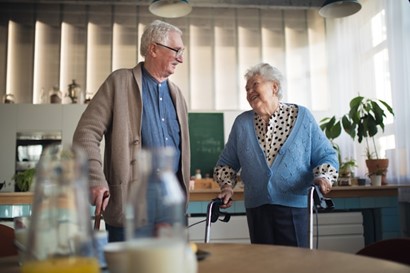Morris Oiring of New York works as a CEO in the healthcare sector, spearheading numerous initiatives aimed at improving patient access to quality care, while simultaneously reducing costs and increasing patient satisfaction. Morris Oiring recognizes the unique challenges faced by today’s senior citizens, and in the following article, Oiring delves into the significance of socialization and hospitality in senior healthcare settings, exploring how these elements contribute to the holistic care of elderly individuals.
As we age, maintaining both physical health and mental well-being becomes increasingly important. For seniors, both socialization and hospitality play a critical role in promoting overall wellness and quality of life.
Morris Oiring on the Need for Mental Stimulation
Combatting Social Isolation: Social isolation is a common challenge among seniors, particularly those residing in healthcare facilities. Morris Oiring of New York explains that the loss of social connections due to factors such as retirement, mobility limitations, or the passing of loved ones can lead to feelings of loneliness and depression. Socialization programs within healthcare settings or senior living centers offer opportunities for residents to engage with their peers, participate in group activities, and form meaningful relationships. These interactions not only alleviate feelings of isolation but also contribute to mental stimulation and emotional well-being.
Promoting Mental Stimulation: Engaging in social activities stimulates the mind and helps older adults maintain cognitive function. From group discussions and games to educational workshops and cultural events, socialization programs offer a variety of opportunities for seniors to stay mentally active and engaged. By participating in such activities and conversations, seniors can enhance memory, sharpen cognitive skills, and reduce the risk of cognitive decline associated with aging.
Fostering Emotional Support: Emotional well-being is closely linked to social connections and supportive relationships. In senior living facilities, fostering a sense of community and belonging is essential for residents’ emotional health. Morris Oiring of New York says that through regular social interactions and mutual support, seniors can share experiences, express emotions, and provide comfort to one another during challenging times. Building strong social networks within healthcare settings creates a supportive environment where residents feel valued, understood, and cared for.
Enhancing Physical Health: Initiatives for socialization also have tangible benefits for an older person’s physical health. Morris Oiring of New York emphasizes that engaging in social activities encourages movement, promotes physical exercise, and helps seniors maintain mobility and independence. Whether it’s participating in group fitness classes, taking walks with friends, or dancing to music, staying active through social interactions contributes to overall physical well-being and reduces the risk of age-related health conditions.
Improving Nutritional Health: Hospitality extends beyond social interactions to encompass dining experiences and nutritional support. Meals served in senior care facilities should not only meet dietary requirements but also be enjoyable and sociable occasions. Creating a welcoming dining environment with nutritious, appetizing meals encourages people to maintain healthy eating habits and ensures they receive essential nutrients for optimal health and wellness.
Empowering Choice and Autonomy: In addition, respecting an older person’s autonomy and preferences is paramount in healthcare settings. Morris Oiring of New York says that providing opportunities for residents to make choices and participate in decision-making processes regarding social activities, dining options, and daily routines empowers them to maintain a sense of control over their lives. By respecting individual preferences and promoting autonomy, healthcare providers foster a culture of dignity, respect, and person-centered care.
Creating Meaningful Experiences: Ultimately, hospitality in senior healthcare is about creating meaningful experiences that enhance residents’ overall quality of life. Whether it’s celebrating birthdays, organizing cultural outings, or simply enjoying conversations with friends, these experiences contribute to a sense of purpose, fulfillment, and joy in later life. Morris Oiring of New York explains that by prioritizing social connections, emotional support, physical health, and individual preferences, healthcare facilities can create environments where residents thrive and flourish in their golden years.

Conclusion
In conclusion, socialization and hospitality stand as pillars of healthcare, vital for nurturing the holistic well-being of elderly individuals. These components go beyond mere amenities; they are fundamental to fostering environments where seniors thrive physically, mentally, and emotionally.
By combatting social isolation, senior healthcare providers address a pervasive issue that can significantly impact seniors’ mental health and overall quality of life. Through intentional socialization programs, residents are given the opportunity to connect with peers, engage in meaningful interactions, and forge lasting friendships, thereby cultivating a sense of belonging and reducing feelings of loneliness.
Moreover, fostering emotional support within senior living communities creates an environment where residents feel understood, valued, and cared for. By facilitating opportunities for mutual support and empathy, healthcare providers cultivate a sense of community where residents can share experiences, express emotions, and find comfort during challenging times.
Ultimately, investing in socialization and hospitality initiatives reflects a commitment to compassionate aging and person-centered care. By prioritizing the holistic well-being of residents and creating environments where seniors feel valued, connected, and supported, healthcare providers not only improve residents’ quality of life but also cultivate communities that embody the principles of empathy, compassion, and dignity. In doing so, they enrich the lives of elderly individuals and honor their contributions to society, ensuring that they age with grace and dignity.









